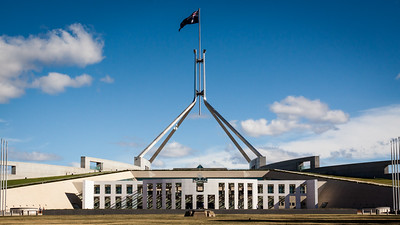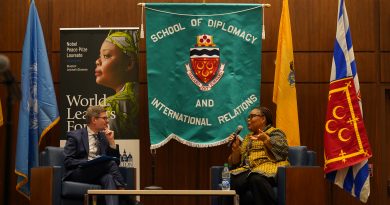Australia Chooses to Not recognize Indigenous People in Referendum
Julia Brown
Staff Writer
On October 14, Australia held its first referendum in over two decades in which the Voice, a proposed permanent body to Parliament representing Aboriginal and Torres Strait Islander peoples, was denied, the Australian Government shares. This would have been a historic and long awaited constitutional change. With all six Australian states and approximately 60 percent of voters saying “no” in this yes or no style referendum, the proposal was irrefutably rejected.
The Aboriginal and Torres Strait Islander Voice was created in an attempt to bridge the gap between Indigenous and Non-Indigenous Australians in relation to each group’s educational opportunities, housing standards, life expectancy, suicide rates, disease, and infant mortality, the Australian Government shares. According to the Australian Government, the Voice was meant to recognize the First People by giving them the opportunity to provide independent advice as an advisory board to the existing government. It would not be involved in money-related matters, delivery services, or possess veto power. Parliament would be able to ignore the advice without penalty. The Voice members would be chosen from all six states and mainland territories with balanced gender representation to reflect the preferences of native populations. It would enrich their role in shaping new legislation that would affect the Aboriginal and Torres Strait peoples. The Voice would be subject to government standards like the National Anti-Corruption Commission and be removed for misconduct.
Opponents of the Voice, specifically members of the No Campaign, argue the campaign would do more harm than good, slowing government legislation and furthering the racial divisions between Australians without increasing Indigenous equity. Some Indigenous people referred to the Voice as a “distraction from achieving practical and positive outcomes,” Reuters writes. Former Liberal Prime Minister Tony Abbott agrees with Peter Dutton, the leader of the No Campaign, declaring “[The Voice] is wrong in principle and it would be bad in practice.”
The Guardian shares that the Yes Campaign in favor of Voice had approximately 80,000 members. Thomas Mayo, a leader of the Yes Campaign, says the No Campaign “has been dishonest” and “has lied to the Australian people.” Lorena Allam, a co-author of a potential framework for the legalization of the Voice says, “The vast majority of retired high court judges and constitutional experts affirmed [the Voice] as being constitutionally safe, sound, and moreover, elegant and practical.” She continues by saying that “Rejecting Voice shows Australia is still in denial [of its history].”
Misinformation and its role in the media has been called into question, as unsubstantiated claims that the Voice would serve as a third chamber of Parliament have circulated, Al Jazeera explains.
On October 15, Australia’s Prime Minister, Anthony Alabanese acknowledged the results, asserting “Constitutional change may not have happened tonight, but change has happened in our great nation. Respect and recognition is given [to Australia’s First People].” With optimism, he says that the issues will be addressed and, “It’s now up to all of us to come together and find a different way to the same destination.” Linda Burney, Minister for Indigenous Australians, echoes Prime Minister Alabanese’s sentiments.
This is a time of grieving for many proponents of the Voice. Marcia Langdon, an acclaimed Aboriginal activist and scholar claims, “It’s very clear that reconciliation is dead.” Indigenous leaders of the Aboriginal and Torres Strait Islander Peoples have called for a week of silence following the defeat of the referendum, AP News shares.
Image courtesy of Flickr



